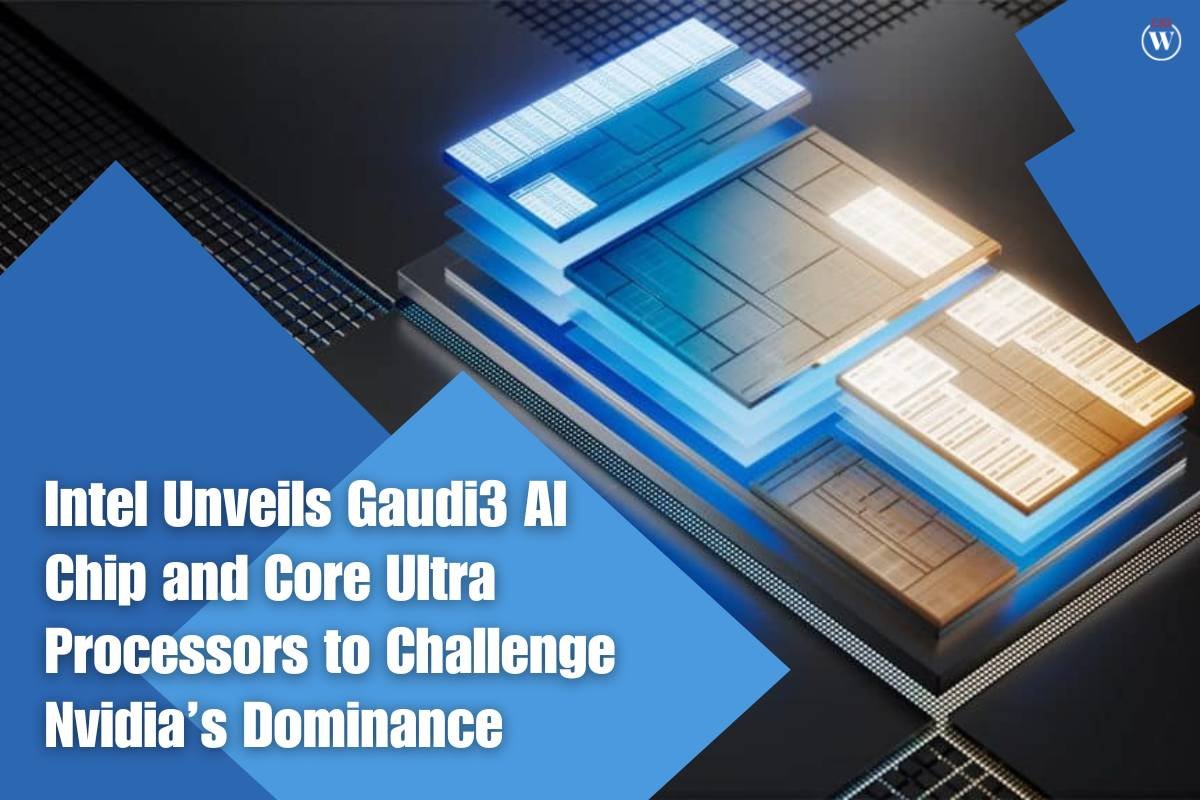In a strategic move to carve a niche in the highly competitive artificial intelligence (AI) chip market, Intel announced the launch of its latest innovation – the Gaudi3. Unveiled on Thursday, Gaudi3 is set to be a formidable competitor to Nvidia and AMD, both giants in the AI hardware space. With a focus on generative AI software, the Gaudi3 is poised to challenge Nvidia’s H100, a popular choice among companies utilizing extensive AI chip farms to power resource-intensive AI models.
Intel’s foray into AI chips began in 2019 with the acquisition of chip developer Habana Labs, and the Gaudi series is a testament to the company’s commitment to staying at the forefront of AI technology. While specifics about the Gaudi3 remain under wraps, Intel CEO Pat Gelsinger expressed confidence that it will make waves in the AI landscape when it launches next year.
Core Ultra Processors – A Leap Towards AI-Centric Computing
In addition to the Gaudi3, Intel revealed its Core Ultra processors, targeting Windows laptops and PCs. These processors are equipped with a specialized AI component known as a Neural Processing Unit (NPU), designed to enhance the speed of AI applications. While not aimed at running large-scale AI models offline, the Core Ultra processors are well-suited for handling smaller tasks, such as the background-blurring feature in video conferencing applications like Zoom.
Furthermore, the Core Ultra processors boast a 7-nanometer manufacturing process, showcasing Intel’s commitment to efficiency and power optimization. This move aligns with Gelsinger’s overarching strategy to catch up to industry leader Taiwan Semiconductor Manufacturing Co. by 2026. The processors also bring enhanced gaming capabilities and improved graphics muscle, promising a more than 40% speed boost for programs like Adobe Premiere.
Fifth-Generation Xeon Processors – Empowering AI in Server Environments
Completing the trio of announcements, Intel introduced its fifth-generation Xeon server processors, catering to large organizations and cloud companies. While exact pricing details were not disclosed, the previous Xeon processors were known to command a substantial price tag. Typically paired with Nvidia GPUs, these processors play a crucial role in systems used for training and deploying generative AI models.
Intel emphasized the prowess of the latest Xeon processor in inferencing, a less power-hungry phase of AI deployment compared to training. This positions the new Xeon processors as an attractive option for organizations seeking efficient AI solutions for large-scale deployments. As Intel’s multifaceted approach to AI hardware unfolds, the industry eagerly anticipates how these developments will impact the competitive landscape and whether they will disrupt Nvidia’s dominant position in the market.
In response to the announcements, Intel’s stock saw a modest 1% increase on Thursday, signaling positive investor sentiment towards the company’s strategic moves in the rapidly evolving AI technology space.









